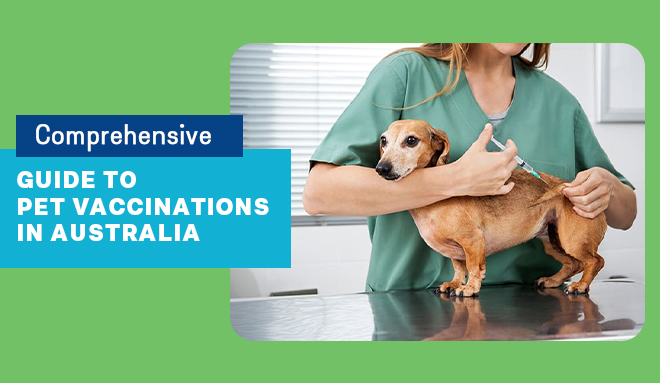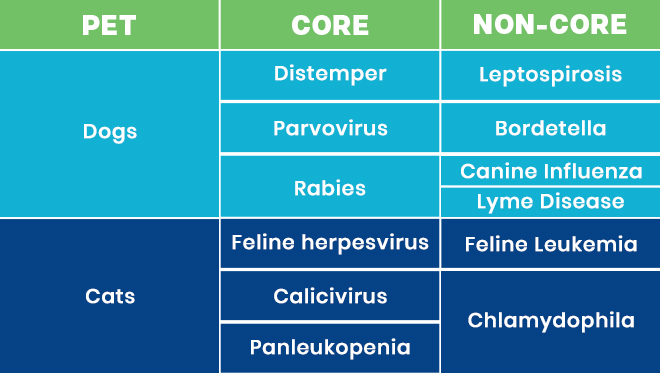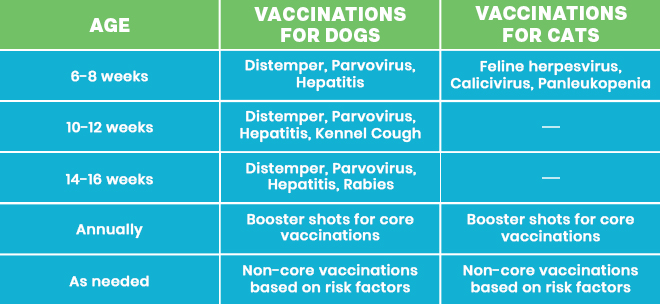
As pet parents, ensuring the health and well-being of our furry friends is a top priority. One crucial facet of pet care is Vaccinations. In Australia, pet vaccinations play a vital role in protecting dogs and cats from various diseases.
In this blog, we will delve into the world of pet vaccinations, exploring their types, how they work, and the core and non-core vaccinations for dogs and cats.
What are Pet Vaccinations?
Pet vaccinations are preventive measures that help protect animals from potentially deadly diseases. They work by stimulating the immune system to produce antibodies against specific viruses, bacteria, or other pathogens. This prepares the pet’s body to fight off these diseases if they are ever exposed to them in the future.
Types of Vaccinations for Dogs and Cats
In Australia, common vaccinations for dogs include those for distemper, hepatitis, parvovirus, and kennel cough. Cats, on the other hand, are typically vaccinated against feline herpesvirus, calicivirus, and panleukopenia. Additionally, both dogs and cats may receive vaccinations for rabies, depending on the region and local regulations.
How Do Pet Vaccinations Work?
When a pet is vaccinated, a small, harmless amount of the disease-causing agent is introduced into the body. This prompts the immune system to recognize the agent as a threat and produce antibodies to fight it. If the pet is later exposed to the actual disease, their immune system will be prepared to mount a swift and effective defence, preventing or reducing the severity of the illness.
Core and Non-Core Vaccinations for Dogs and Cats
In Australia, pet vaccinations are categorized as core and non-core. Core vaccinations are those that are considered essential for all pets due to the severity of the diseases they protect against and the risk of exposure. Non-core vaccinations, while still important, may be recommended based on the pet’s lifestyle, environment, or other factors.

The non-core vaccinations may be recommended based on the pet’s individual risk factors, such as their lifestyle, geographic location, and exposure to other animals. It’s important for pet parents to consult with their veterinarian to determine which non-core vaccinations (if any) are appropriate for their pets.
Pet Vaccination Schedule
The vaccination schedule for pets in Australia typically begins when they are puppies or kittens and continues throughout their lives. Below is a general outline of the vaccination schedule for dogs and cats:

This schedule provides a general guideline for the vaccination timeline for dogs and cats in Australia. However, it’s important for pet parents to consult with their veterinarian to create a personalized vaccination plan based on their pet’s individual needs and risk factors. Regular booster shots for core vaccinations are typically recommended annually to ensure continued protection against diseases.
Bottom Line
Pet vaccinations are a crucial facet of responsible pet parentship in Australia. By understanding the types of vaccinations available, how they work, and the core and non-core options for dogs and cats, pet parents can make informed decisions to protect their beloved companions from preventable diseases. Following a recommended vaccination schedule ensures that pets can lead healthy and happy lives, free from the threat of many dangerous illnesses.


